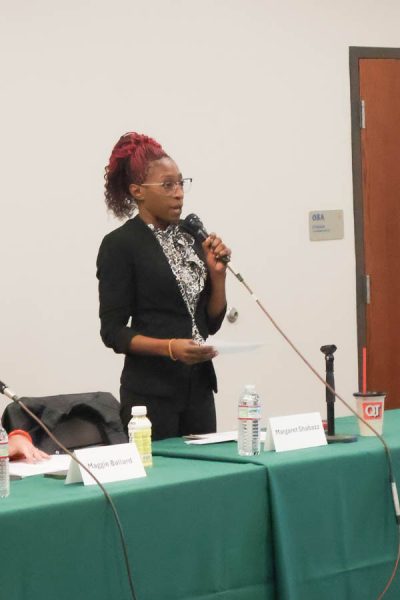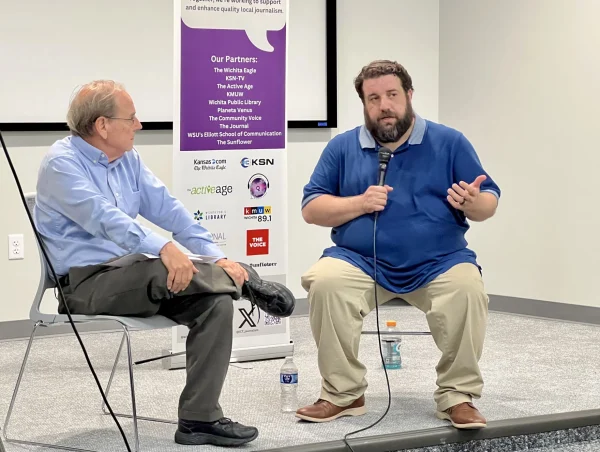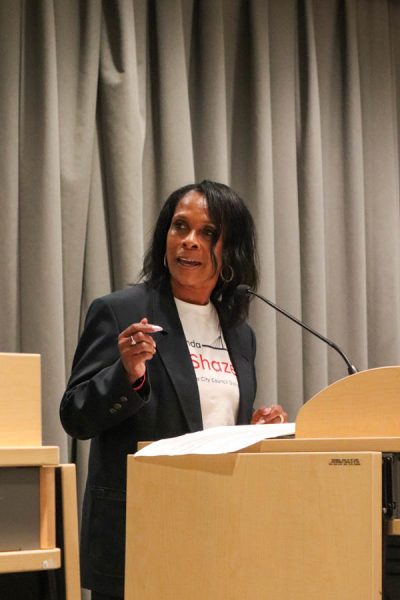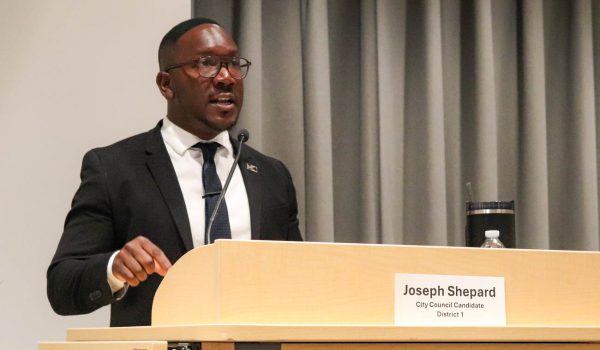Wichita State plans to use local, national newspaper fund for security cameras
The decision will not affect The Sunflower
Wichita State’s student government plans to use the student fees money that made local and national newspapers available for free on campus to install security cameras, fund an international hardship fund, and pay for “any special projects SGA would like to take on.”
Wichita State Student Body President Paige Hungate announced Thursday that student government “discontinued” the student-funded Collegiate Readership Program, citing “inconsistent deliveries and breach of contract” as reasons.
“Papers weren’t being delivered,” Hungate wrote in an email Thursday. The Wichita Eagle, USA Today, and the New York Times newspapers have not been delivered on a consistent basis to campus buildings for months, and The Sunflower began hearing complaints from readers as early as September about the other newspapers not being delivered on campus.
The Collegiate Readership Program, which is funded by $62,500 in student fees, provided free copies of the Wichita Eagle, USA Today, and the New York Times to Wichita State students. The decision will not affect The Sunflower, which has its own, separate newsstands and delivery system.
According to a PowerPoint slide Hungate provided Thursday afternoon, the program had “roughly $61,000.00 in reserves.” Plans for that money include using $46,000 to install security cameras on campus and indicate that amount would cover half of the installation cost. The university will fund the rest of the security camera installation costs.
“We will be getting 360 degree security cameras on each of the blue emergency light poles. We have partnered with the administration on this project,” Hungate said via email.
The plans also include putting $10,000 of the $61,000 towards the EOF International Hardship Fund. The fund provides one-time assistance to international students who experience financial hardship during their time on campus.
“SGA promised this money years ago, pledge was never deposited,” the document says of the plans to redirect $10,000 to the hardship fund for international students.
“The remaining $5,000.00 will remain for any special projects SGA would like to take on,” the document says.
Hungate made the announcement through her monthly “Engage with Paige” video, a forum where she answers pre-submitted questions from students. During the video, Hungate read the summarized findings of a survey sent to students through the university’s Qualtrics system. One of the questions related to the readership program.
The survey asked students, “Are you aware of the Collegiate Readership program?” Of the 350, or 2 percent of the student population, who responded to the survey, 25.57 percent of respondents answered yes, 11.49 percent were unsure, and 62.93 percent answered no.
More than 52 percent of student respondents who said they are aware of the program said they “never pick up the paper,” Hungate said.
Hungate said the program was ended “because of the perception from students that it was unnecessary, but moreso than that, there was a breach of contract and we weren’t getting the deliveries that we were required to have with our contract, so we ended up ending that program.”
Hungate said the survey was sent out to 4,500 students, based on guidance from Qualtrics operators. She said student government does not have an issue with releasing the raw data of the survey.
The Student Senate did not vote to formally approve this decision, but Hungate said it was updated as discussions progressed.
“(SGA) Treasurer (Marshall) Johnson also discussed with the Budget and Finance Committee and Senate regarding the ending of the Collegiate Readership Program,” Hungate said by email Thursday.
Johnson has not yet responded to a request for further information about the decision.
Hungate said the discussion of ending the collegiate readership program went on “for many months amongst many people” and that the information is available in the SGA meeting minutes.
“Maybe it is not a lack of transparency problem; maybe it is a lack of individuals paying attention at meetings to what we say,” Hungate said in an email.
Hungate said SGA would not be requesting funding for the readership program in the future.

Chance Swaim was the Editor in Chief of The Sunflower from fall 2017 to spring 2018.
Swaim was a graduate student in the English Department working...











Real Shocker • Feb 1, 2018 at 9:32 pm
Many months with many people. Probably a couple days with Bardo and Schlapp and then the told her what to do. The fee will probably stay and go o Athletics.